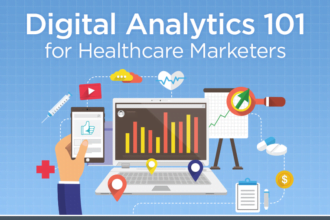Thanks to $1 million grants from Health and Human Services, the battle over the ObamaCare health exchanges is heating up in the states. As the rent-seekers jockey for position, all kinds of claims are being made. The purpose of this post is to describe what health exchanges are, and what they aren’t. Under the ObamaCare law, the exchanges will broker individual and small group plans offered by insurers and health benefit plans. Contrary to what some small business owners have been led to believe, they only provide a market for health insurance existing plans. They do not buy insurance or create insurance. They must be self-supporting by January 1, 2015. States were eligible to receive $1 million in federal grants to work on exchange development. So far, governors in Florida, Louisiana, and Georgia have said no thanks to state exchanges. On January 1, 2013, the Secretary of Health and Human Services must determine whether a state will have an operational exchange by January 1, 2014. If a state exchange will not be operational, the federal government will operate its own exchange in that state either directly or through agreement with a not-for-profit entity. Federal law specifically says that the operation of a federal exchange has no effect on state regulatory authority or law. When states elected not to set up the temporary high risk pools required by ObamaCare, the federal government enrolled people in those state in GEHA, a federal employees’ health benefit plan. This experience suggests that an extension of the Federal Employees Health Benefits Plan would not be out of the question in states that also refuse to set up health insurance exchanges. Though state officials are promoting state exchanges as necessary to creating market oriented health insurance markets, ObamaCare health insurance regulation is constructed so that states can have virtually no authority over the kinds of policies offered. According to the HHS Exchange website the only choices that states can make when they set up a state exchange are:
- Should the state Exchange be a government agency or a non-profit?
- Will the state join with other states in forming regional exchanges or data sharing groups?
- Should the exchange provide insurance for groups of more than 50 employees?
- Should insurers in the exchange be required to offer more benefits than ObamaCare prescribes?
- Should entry be based on competitive bidding?
- Should exchange membership be mandated for all insurers in the state—the government calls this requiring “all insurance firms in the state abide by Exchange-specific regulations?”
These conditions suggest that state exchanges will provide ample opportunity for rent-seeking entities in state to use the exchanges for their own benefit at the expense of people who pay for health insurance. They can do this either by making membership involuntary and collecting fees from every health insurance transaction or to seek competitive advantage by writing rules that exclude competitors. The ObamaCare law says that exchanges may become self-supporting by charging “assessments or user fees to participating health insurance issuers, or to otherwise generate funding, to support its operations.” This means that exchanges will either get tax dollars from state treasuries or extract fees from those participating in them. Either way, exchanges increase costs. The model for ObamaCare, and the only operating exchange of any size, is the Massachusetts Connector Authority. As John Graham has pointed out, it had revenues of $36 million in FY 2009, expenses of $29 million, and net assets of $17.6 million. The Commonwealth Fund reports that in addition to an original appropriation of $25 million, the Authority charges an administrative fee of 4 percent of the capitation payments for Commonwealth Care (the Massachusetts Medicaid/SCHIP program), and 4.5 percent of the monthly premiums for Commonwealth Choice. The Connector does not appear to have reduced costs. John F. Cogan et al. estimated that insurance premiums in Massachusetts were 6 percent higher than they would have without the reform that created the exchange. Massachusetts exchange policies have less variety than the policies offered in less regulated insurance markets in other states, offer a narrower array of features, and do not cover non-emergency care outside of Massachusetts. In a state with a population of 6.6 million people, an estimated 6 million of which are covered by insurance, a grand total of 36,649 people have used the exchange to purchase unsubsidized coverage. Of these 5,540 are enrolled in the small group business plans the exchanges are supposed to facilitate. These numbers are even less impressive when one considers that they include people who would be enrolled in other states’ high risk pools. Similarly unimpressive numbers have been generated by the Utah exchange. Started in 2005 and reconstituted after failure, its current incarnation had enrolled 69 small businesses covering 2,000 lives as of March 2011 according to The Commonwealth Fund. In a state with almost two hundred thousand non-farm establishments employing almost two million privately insured workers, this is a trivial number. HIPUtah, the state’s high risk pool for the uninsurable, had 4,158 people enrolled at the end of FY 2010. Like the ObamaCare pre-existing condition pools, which at the beginning of February had enrolled about 12,500 people despite enrollment predictions of 375,000, the ObamaCare state health insurance exchanges are a solution in search of a problem. Their inclusion in ObamaCare is the result of three of the false claims that plague the US health policy community: 1) the belief that the services of health insurance brokers add to health insurance costs without benefit, 2) the belief that consumers cannot buy health insurance because current policy forms offer too much variety and are too complicated to understand, and 3) the belief that “good” health insurance is only that insurance that imitates the expensive policies and procedures of the Federal Employees Health Benefits Plan.






